
Sumimasen Meaning
Usage of すみません (sumimasen) versus ごめんなさい (gomen'nasai) Ask Question Asked 12 years, 7 months ago. Modified 9 years, 6 months ago. Viewed 67k times 53 There are several situations in which one of these words (phrases?) should be used but there's not usually a 1:1 mapping between any two languages. Get somebody's permission..
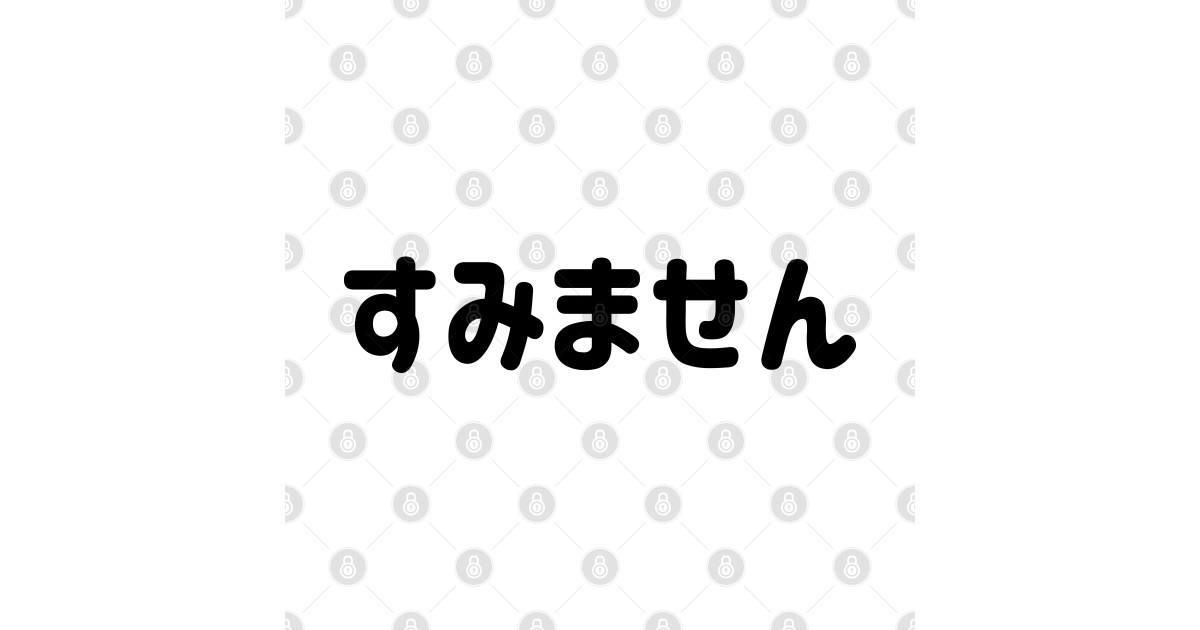
Sumimasen "すみません" (Excuse me) in Japanese Hiragana Black すみません くろ
すみません • ( sumimasen ) sorry! (in apology, more formal than ごめんなさい (gomennasai)) excuse me! (attempting to get someone's attention) thank you! (in the case of someone having done something for you) This page was last edited on 22 February 2023, at 06:51. Definitions and other text are available under the Creative Commons.

hiragana tableau base Apprendre le japonais avec Kenta
You'd use "sumimasen" in place of "excuse me.". This is a typical scenario in Japan where you'd use the word sumimasen to request an item. It's often used when asking for a favor. It makes the request less offensive and demanding. We all know that our chances of getting what we want are much higher if we ask nicely!
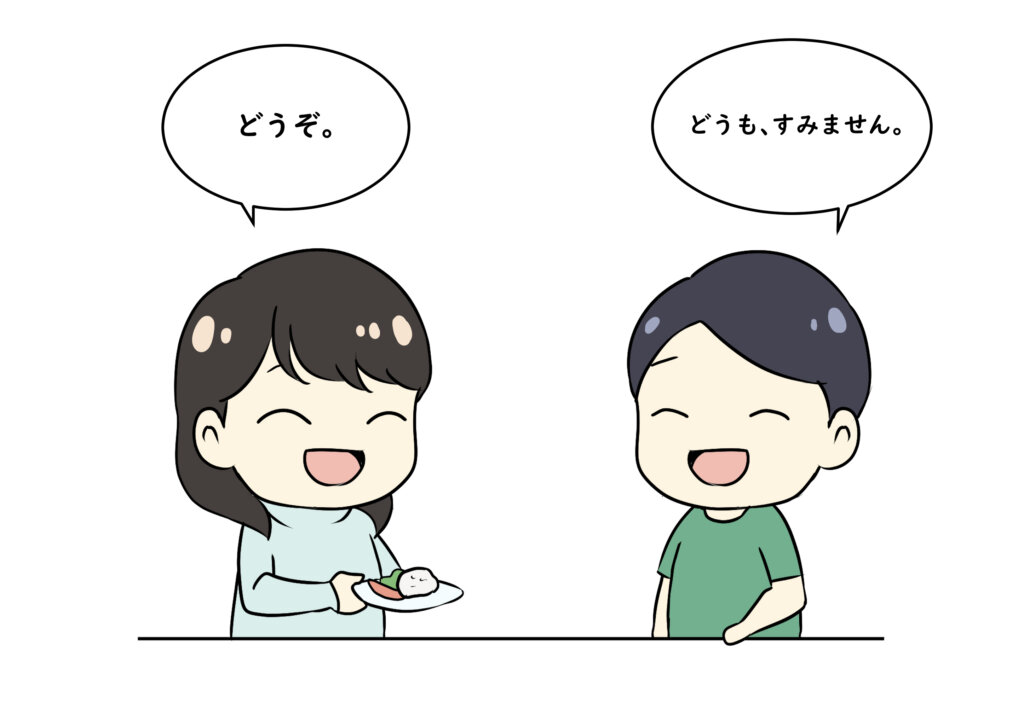
Sumimasen (Mohon Maaf) − Belajar Bahasa Jepang Kepo Jepang
すみません / スミマセン - Translation from Japanese into English - LearnWithOliver. Hiragana: すみません. Katakana: スミマセン. Romaji: sumimasen. English Meaning: I'm sorry!, Excuse me! Example Sentences: あんなことして、すみませんでした。. an'na koto shite, sumimasen deshita. I'm sorry for what I did.

"Sumimasen Hiragana " Sticker for Sale by InkaKramer Redbubble
For such cases, paste the converted Hiragana or Katakana into the RomajiDesu's Japanese Translator where the sentence is analyzed into basic element as well. sumimasen in Hiragana: すみません, in Katakana: スミマセン. Romajidesu features powerful but easy-to-use tools for Japanese learners.

JAPENG, "Sumimasen." = "Excuse me." [Ver.2, Katakana Hiragana] YouTube
Sumimasen (hiragana: すみません) Although Sumimasen means "excuse me" or "I'm sorry", it is also used in the sense of "thank you." Why? Because it is a way of expressing appreciation for the work that the other person went through to give you what you are grateful for.
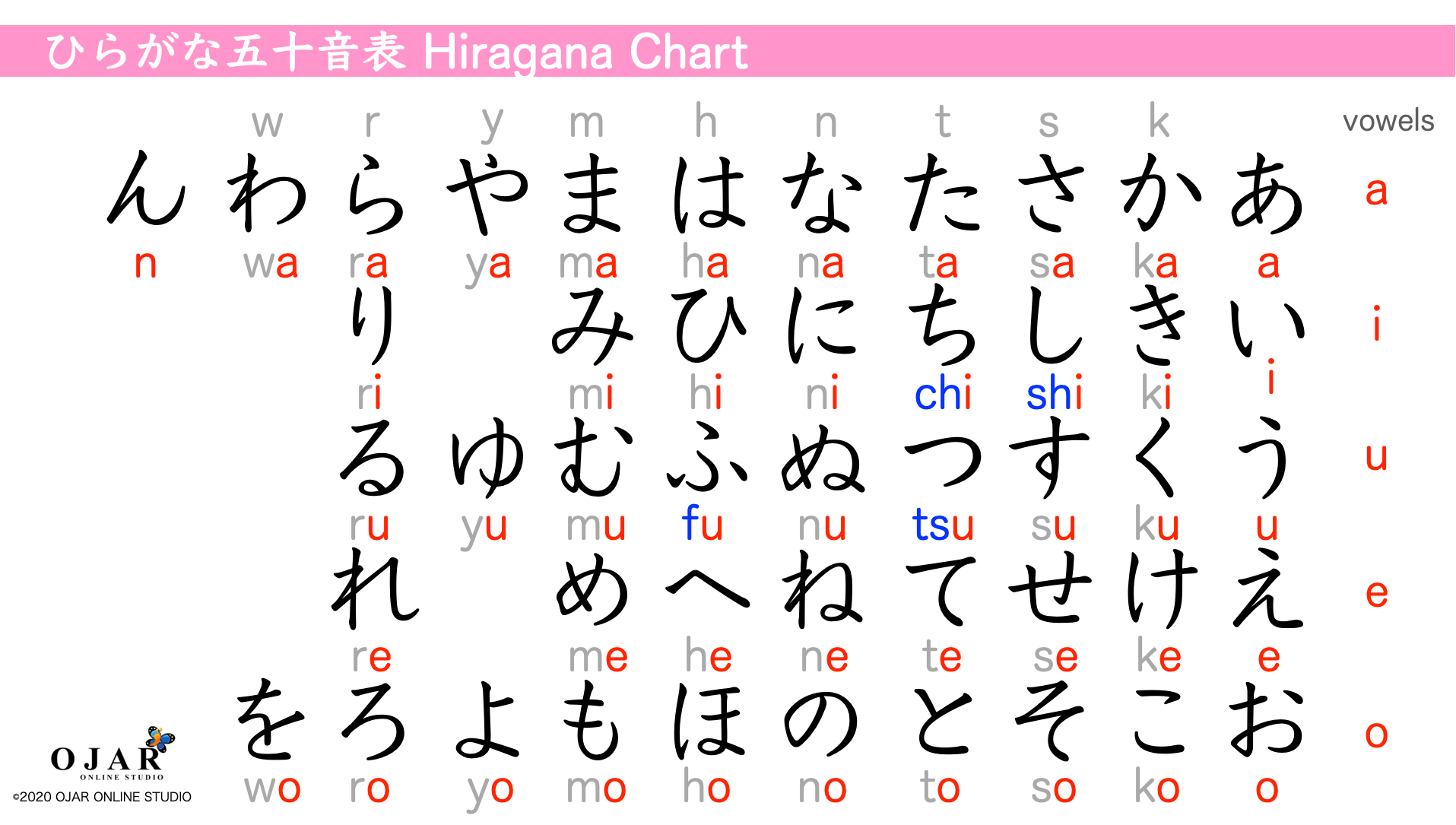
Japanese Lesson 1 51 Tips to Learn Hiragana OJAR ONLINE STUDIO
1. Using "Sumimasen" as an Apology. When Japanese people apologize to someone, they normally say "sumimasen," which means "I'm sorry". Generally, Japanese people say "Sumimasen" by reflex in the following situations: ・When bumping into someone while not paying attention. If you were to bump into someone on the street because.

Sumimasen "すみません" (Excuse me) in Japanese Hiragana White すみません しろ by
It should be used to superiors. It shows a stronger feeling than "Sumimasen (すみません)". If you are apologizing that something has been done, "Moushiwake arimasen deshita (申し訳ありませんでした)" can be used. Like "Sumimasen (すみません)", "Moushiwake arimasen (申し訳ありません)" is also used to express.
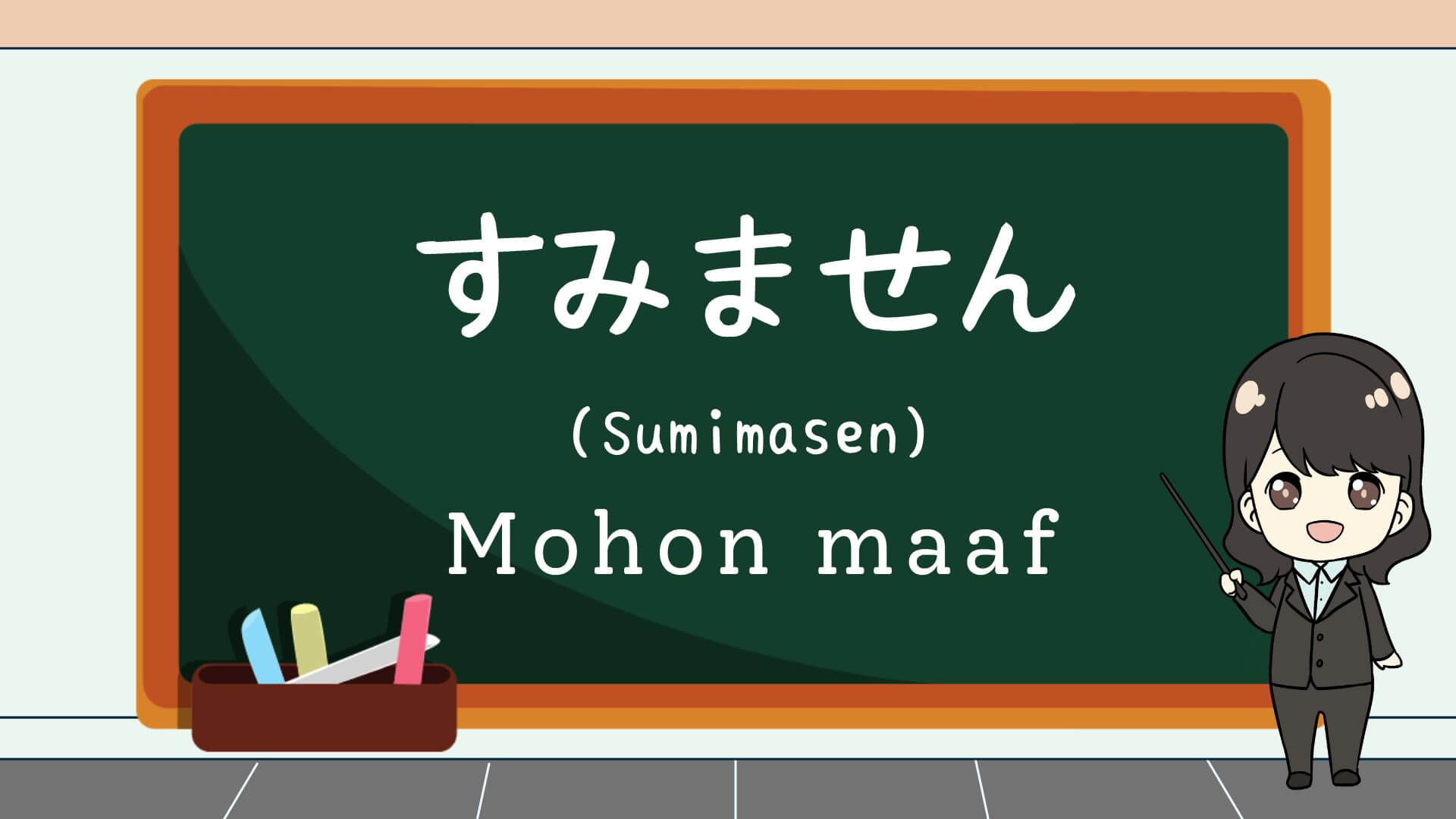
Sumimasen (Mohon Maaf) − Belajar Bahasa Jepang Kepo Jepang
SUMIMASEN has many different meanings: "I'm sorry", "thank you" and to get someone's attention. It might be confusing at first, but once you've used it for a while, it'll become second nature.

Sumimasen "すみません" (Excuse me) in Japanese Hiragana Black すみません くろ
In fact, using sumimasen in situations involving debt to another like the one above could be regarded as a more polite thank you than arigatou, as it shows the speaker's awareness of the other person's trouble and also adds a tone of humbleness. 3. Making a Request. Sumimasen can also be used

Pin on 日本話 JapaneseLang
Romaji: Sumimasen. The literal translation of this phrase is "sorry". That said, you can use it not just to apologize but also to gently excuse yourself from whatever situation you are in. In Japan, you can use this phrase in situations when you would have said "excuse me" in English.. Hiragana: どういたしまして.

Sumimasen Meaning
Sumimasen deshita (sorry for what I did) is the most common way to make a formal apology. Let's say you get caught skipping work to go fishing. This is the way to apologize to your boss.Gomensai is another common way to apologize. However, it's used to apologize to someone you with whom you have a close relationship.

CrunchyNihongo on Instagram “Sumimasen Vs Gomenasai Different way to
Sumimasen is one of the most useful words in the entire Japanese language. It is quite versatile and can be used (and often is) in almost every situation. Its most basic translation is "excuse me". If you are trying to squeeze through a crowd or past a dozen people to get off of the train before the doors close,.

Basic Hiragana Chart • Marimosou
Two words for Excuse me in Japanese. Native Japanese speakers use すみません (sumimasen) and ごめんなさい (gomen nasai) almost interchangeably. Indeed, both are reasonable for the situation to attract someone's attention and express an apology or regret in casual ways. However, this does not apply to all kinds of situations.
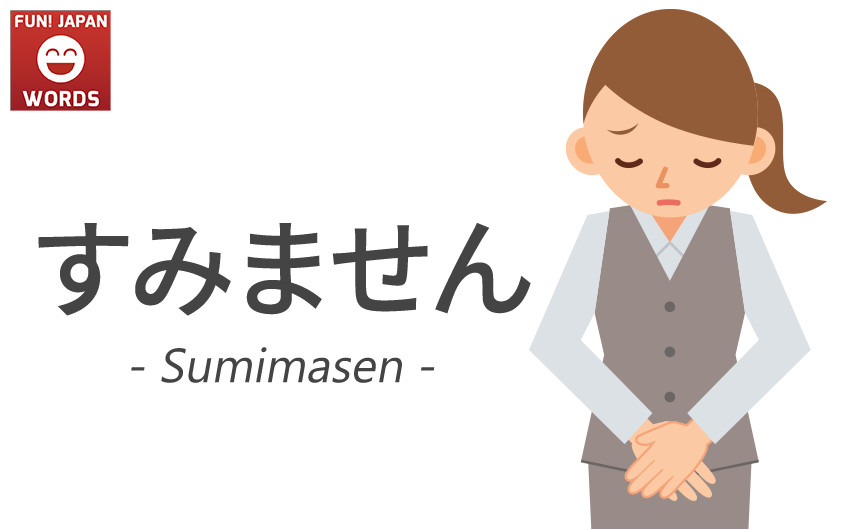
sumimasen(すみません) Fun! Japan Words_vol.5
すみません is the correct pronunciation, so on that count I suppose it would be considered more polite by a very small margin.But just like in English, people can be lazy with pronunciation, which is why you'll sometimes hear すいません.You also might run across すんません and すんまへん, but from what I've read these are more Kansai-isms than anything else.

05 Sumimasen / 2 minutes study Japanese YouTube
Sumimasen can mean "sorry" when you want to make a small apology. You might want to say, "oops, sorry about that!" as you get in someone's way at the train station. The equivalent in Japanese is a very shallow bow of the head and a quick " sumimasen ."